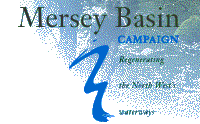
Supervisors

John Handley, Groundwork Professor of Land Reclamation
Joe Ravetz, Director of Centre for Urban and Regional Ecology
School of Planning and Landscape, University of Manchester, UK

Ph.D. RESEARCH SEPT. 2000 - 2003
A PARTICIPATORY PROTOCOL FOR ECOLOGICALLY INFORMED DESIGN WITHIN RIVER CATCHMENTS - SUMMARY
| Researcher | |
 |
Joanne Tippett of Holocene Design |
|
Supervisors |
|
 |
John Handley, Groundwork Professor of Land Reclamation Joe Ravetz, Director of Centre for Urban and Regional Ecology School of Planning and Landscape, University of Manchester, UK |
 |
Jeff Hinchcliffe, Executive Director Mersey Basin Campaign |
Aim
The overall aim of this research is to develop a design process based on ecologically informed principles that encourages participation in integrated catchment planning.
Research Questions
1. Are there generic principles to guide successful integrated catchment planning?
2. What is an effective process of integrating local actions with strategic planning?
3. What is an effective process of engaging participation in ecologically informed planning and design at the landscape scale?
4. How do these principles and processes fit into a broader theoretical framework?
Research Context
1. Level of scale - catchment of major river basin with a variety of landscape uses and pressures.
2. Increasing importance of sustainable development - little attention paid to developing a communicable design process for applying sustainability principles.
3. Preferred research tool - testing the established 'DesignWays' method in the catchment planning context.
4. Research partner and sponsor - Mersey Basin Campaign, a 25 year government initiative and a key factor in the North West region's objective of a 'green and pleasant region'. The Campaign was awarded the inaugural International RiverPrize for best practice in Catchment Management in 1999.
5. European Union Water Framework Directive - this new legislation requires each Member State to produce an integrated management plan for all of its river basins. These plans must be formulated with a high degree of community and partnership involvement.
Objectives
1. Develop transferable principles for ecologically informed catchment management
2. Develop process of ecologically informed participatory design
3. Provide recommendations for increasing effectiveness of participation and partnership models in ecologically sustainable planning
4. Contribute to theoretical underpinnings of emerging sustainable planning methodologies.
Outcomes
1. Principles for successful development of Campaign concept - the basis for information packages for organisations wishing to learn from the Campaign
2. Tool kit for sustainable development at the landscape level of scale
3. Tool kit for facilitating participation into integrated catchment management
Methodology
1. Explore two case studies - Mersey Basin Campaign and its River Valley Initiatives
2. Investigate key concepts, derived from the researcher's previous experience with sustainable planning, in the context of the two case studies.
3. Action-based research, the researcher will facilitate a participatory planning process for a Campaign Initiative, focusing on the method of design.
4. Synthesize data from case studies, write up generic principles for integrated catchment planning and participatory planning.